
Febusafe 80 Tablet
Manufacturer
Biosafe Formulations
Salt Composition
Febuxostat (80mg)
Key Information
Short Description
Febusafe 80 Tablet is a medicine used to treat and prevent gout by keeping uric acid levels low.
Dosage Form
Tablet
Introduction
Febusafe 80 Tablet is a medicine used to treat and prevent gout. Gout happens when there is too much uric acid in your body and it forms into crystals that can appear around your joints leading to painful and swollen joints. This medicine helps to keep uric acid levels low.
Directions for Use
Take this medicine in the dose and duration as advised by your doctor. Swallow it as a whole. Do not chew, crush or break it. Febusafe 80 Tablet may be taken with or without food but it is better to take it at a fixed time.
Safety Information
Side Effects
No common side effects listed.
Alcohol Warning
Caution is advised when consuming alcohol with Febusafe 80 Tablet. Please consult your doctor.
Breastfeeding Warning
Febusafe 80 Tablet is probably unsafe to use during breastfeeding. Limited human data suggests that the drug may pass into the breastmilk and harm the baby.
Pregnancy Warning
Febusafe 80 Tablet may be unsafe to use during pregnancy. Although there are limited studies in humans, animal studies have shown harmful effects on the developing baby. Your doctor will weigh the benefits and any potential risks before prescribing it to you. Please consult your doctor.
How it works
Febusafe 80 Tablet is a xanthine oxidase inhibitor. It works by decreasing blood uric acid which is the chemical that causes gout.
Quick Tips
Take it at the same time every day Take plenty of fluids (2-3 litres) daily while on Febusafe 80 Tablet. Do not stop Febusafe 80 Tablet on having an acute attack of gout as that could make an attack worse. Do not consume alcohol while taking this medicine as it may cause your gout to flare up. Stop taking this medicine and inform your doctor straight away if you have symptoms like rash, itchiness, difficulties in breathing, fever, or swelling of limbs or face.
Related Medicines
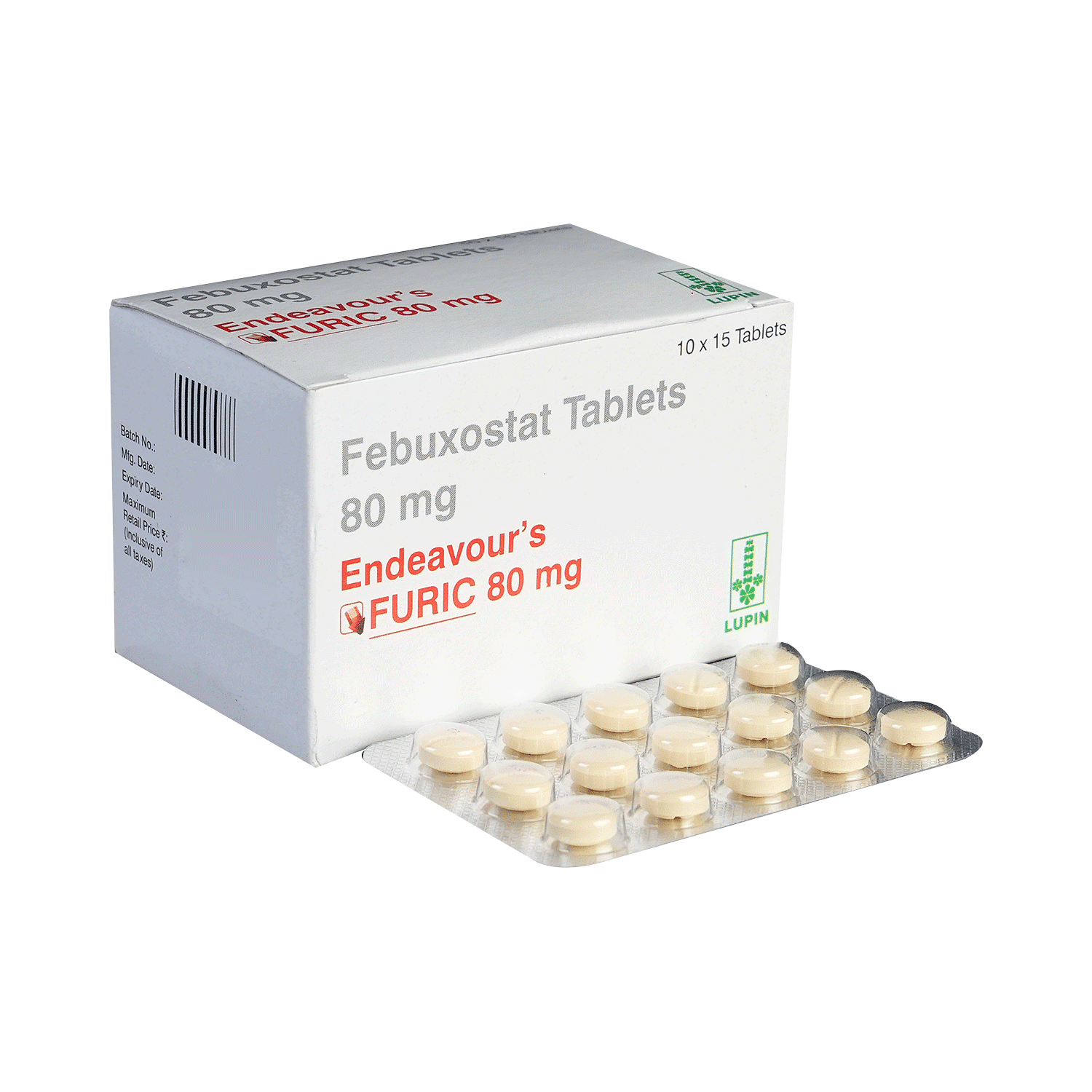
Furic 80mg Tablet
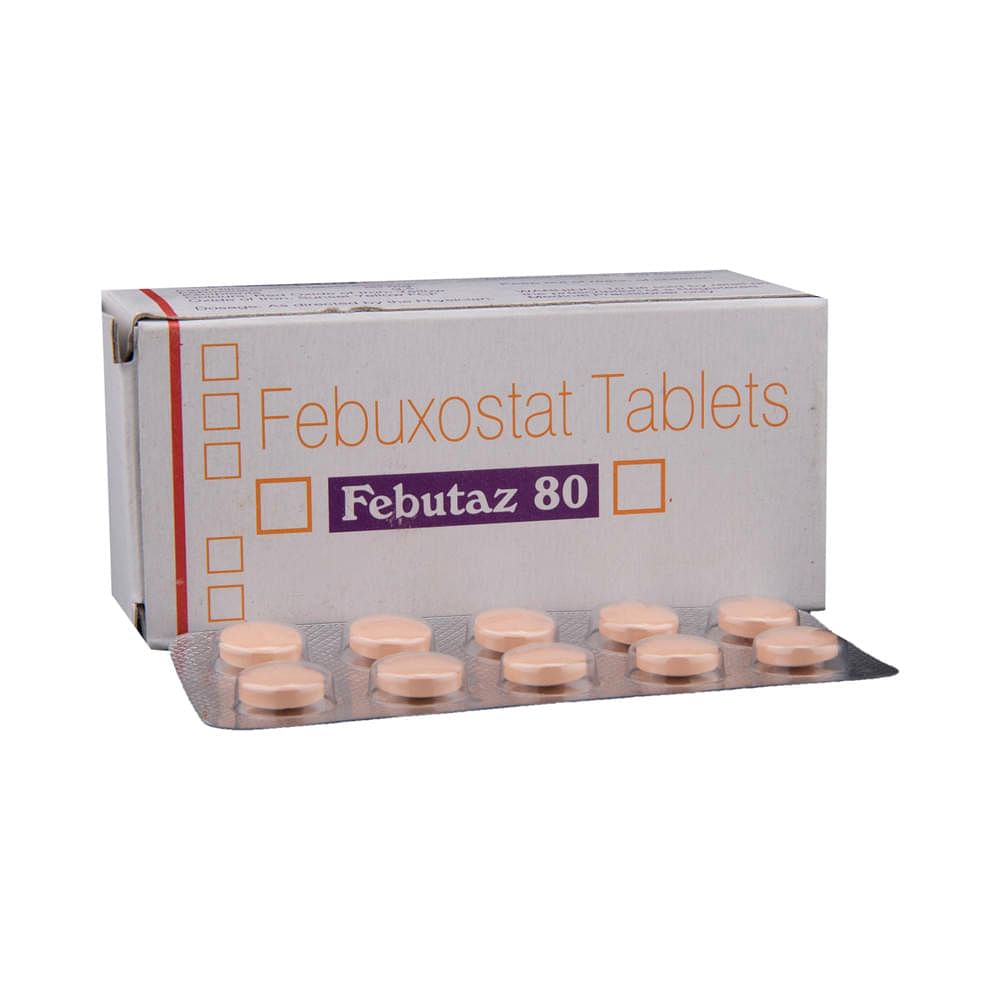
Febutaz 80 Tablet
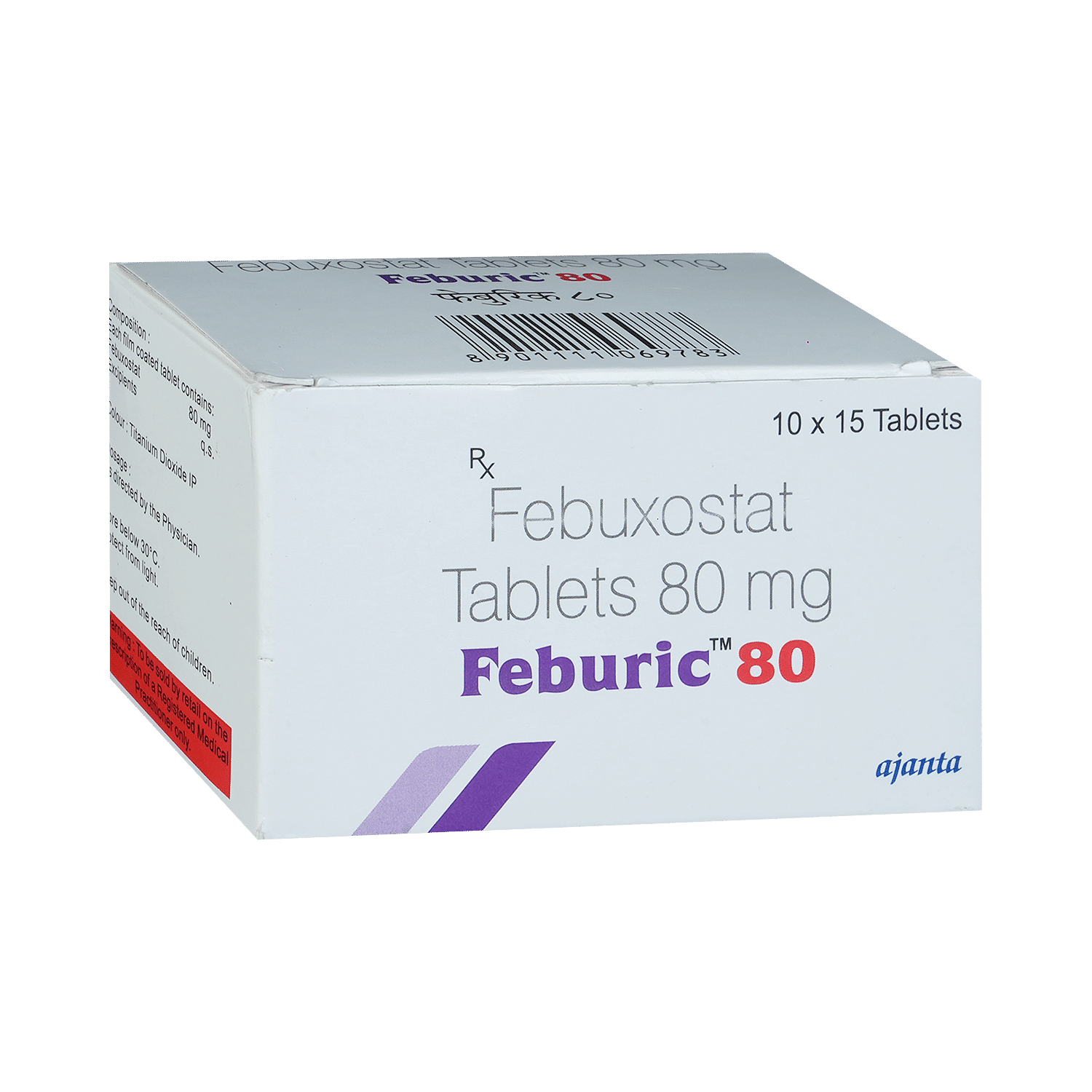
Feburic 80 Tablet
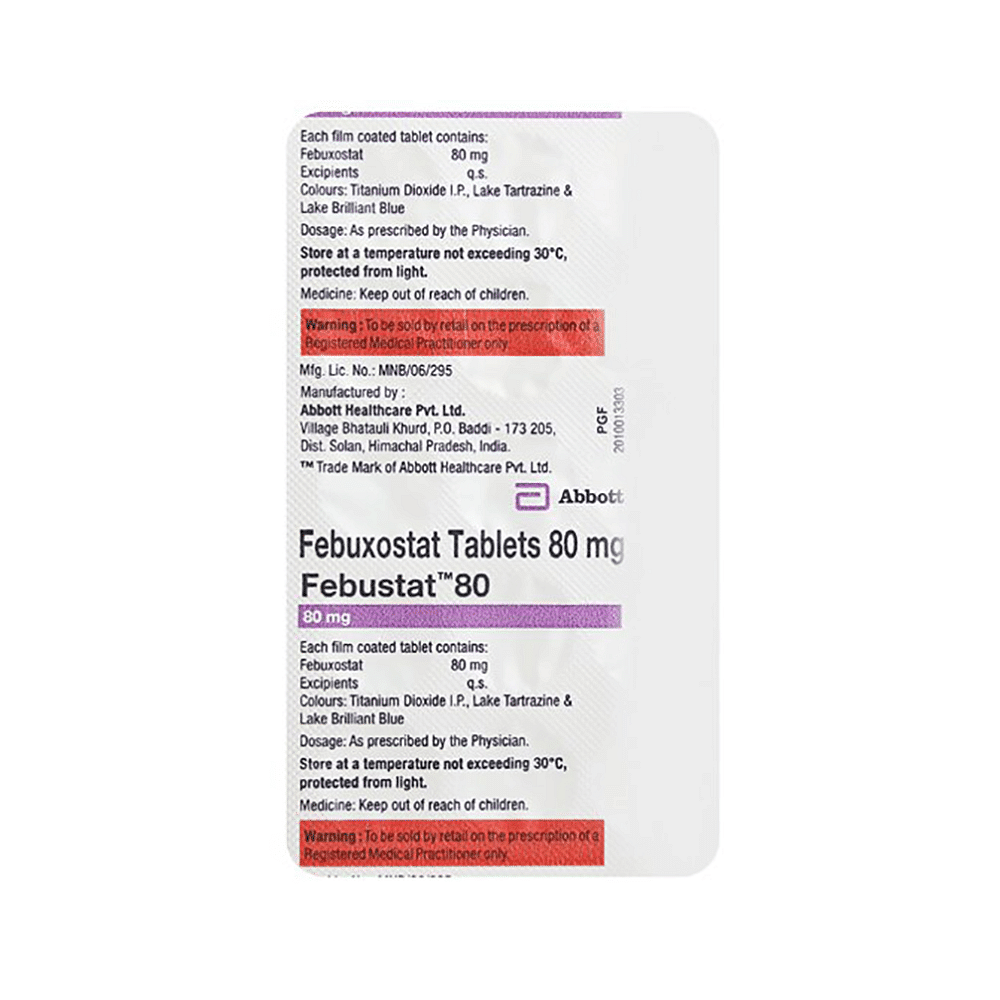
Febustat 80 Tablet
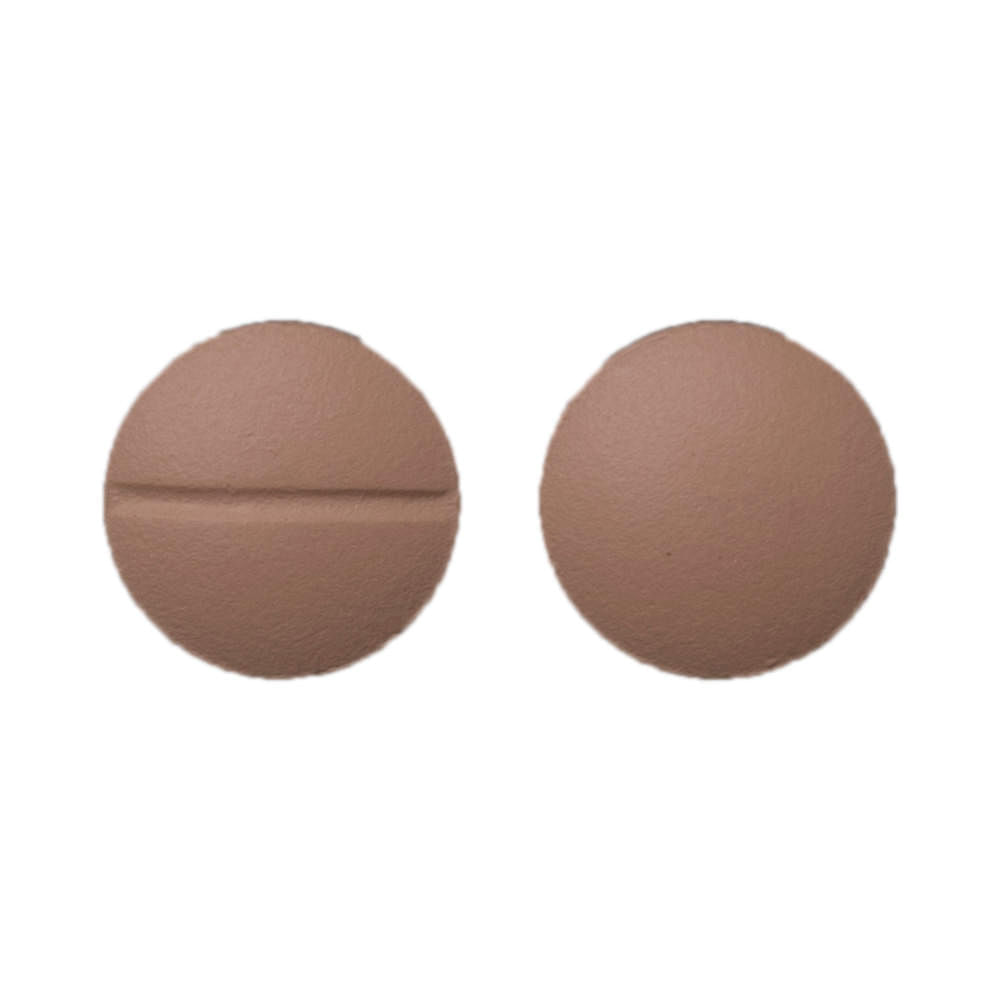
Febuget 80 Tablet

Ubexa 80 Tablet

Avustat 80mg Tablet

Febunity 80 Tablet

Freegout 80mg Tablet

Febodec 80mg Tablet
Frequently asked questions
What is Febuxostat used for?
Febuxostat, sold under the brand name Uloric among others, is a medication used to treat gout in adults. It works by reducing the production of uric acid in the body.
What are the side effects of Febuxostat?
Common side effects of febuxostat may include headache, diarrhea, and nausea. Serious side effects may include liver damage, kidney problems, and allergic reactions.
How long should I take Febuxostat?
The dose and duration of febuxostat vary from person to person and are decided by your doctor. It is essential not to stop taking febuxostat without consulting your doctor even if you feel better.
What is the best time to take Febuxostat?
Febuxostat should be taken once a day, at the same time each day, with or without food.
Can Febuxostat cause kidney damage?
Rarely, febuxostat may affect the kidneys, leading to blood in the urine, frequent urination, kidney stones, abnormal urine tests (increased level of proteins), and a reduction in the ability of the kidneys to function properly.
Can I stop taking Febuxostat on my own if I am fine and have no pain or swelling in joints?
No, do not stop taking febuxostat without your doctor's advice even if you feel better. Discontinuation may increase uric acid levels and worsen symptoms due to the formation of new crystals of urate.
What are the things which I need to know while taking Febuxostat?
Be aware that febuxostat may cause serious heart problems, including chest pain, shortness of breath, dizziness, fainting, rapid or irregular heartbeat, numbness or weakness in one side of your body, slurring of speech, and sudden blurry vision or severe headache. Inform your doctor immediately if you experience any of these symptoms.
Can Febuxostat cause liver problems?
Febuxostat use may cause liver problems. Your doctor may advise regular blood tests before and during treatment to check how well your liver was working. Inform your doctor if you notice fatigue, pain or tenderness on the right side of the abdomen, loss of appetite, dark urine (tea-colored), or jaundice.


